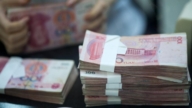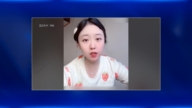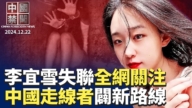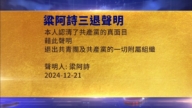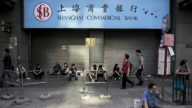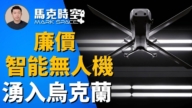【新唐人2012年7月18日讯】现在,当官的到底是为人民服务还是为人民币服务?中国大陆官场贪腐情况严重,内蒙古自治区原副主席刘卓志,因卖官受贿超过810万元,被判处无期徒刑,而随着案件发展,刘卓志的“卖官价目表”也浮出台面。有评论指出,中国贪官数量不断增长,腐败指数也跟着上升。
7月2号,原内蒙古自治区政府原副主席刘卓志因卖官、受贿,被北京市一中院以受贿罪判处无期徒刑。
资料显示,原内蒙古副主席刘卓志于2002年至2010年间,利用担任内蒙古自治区锡林郭勒盟盟长、和中共内蒙古自治区锡盟盟委书记、以及内蒙古自治区人民政府副主席的职务便利,为单位和个人在采矿权审批、企业经营、职务晋升、职务调整、工作调动等方面谋取利益,非法收受贿款达八十六次,涉及金额超过810万元。
据报导,刘卓志收钱“卖官、卖项目”,在锡盟已经是公开的秘密,当地至少有十几个委办局的一把手位子是花钱买来的。其中收受时任“锡林浩特市城乡规划处设计室”主任贾乘麟65万元,提拔贾为市城乡规划局局长﹔收受64万提拔牛志美为锡林浩特市委书记等等。
原《河北人民广播电台》编辑朱欣欣:“实际上,买官卖官所谓地下这个价格,其实早就有了,只不过是这次曝光以后,把它彻底的公开化而已,这个潜规则大白于天下,另外也充分说明了中国这个政治体制改革的迫切性。”
原《河北人民广播电台》编辑朱欣欣认为,政府如果不通过法治民主的程序来选拔人才,不铲除用人为亲这个腐败制度,那么买官卖官这个现象只会更加严重。
朱欣欣:“这个官场,就是完全靠所谓的中共组织部来选拔干部,那完全会陷入长期任人为亲的这种恶性循环,完全靠金钱来选拔官员,那肯定会一步步的在这腐败的泥沼中越陷越深。”
事实上,中国还有很多赫赫有名的“官帽批发商”,如原山西省长治市委常委王虎林卖出430多顶官帽。2001年,他以“巨额财产来源不明罪”、“受贿罪”及“玩忽职守罪”共被判刑8年。
原黑龙江省绥化市委书记马德卖官帽达260多顶,从镇长(乡长)、镇委书记,县长、县委书记,到市直属机关正职、副职,都明码标价,市委大院成了“乌纱帽批发中心”。
另外,被称为“卖官书记”的陕西商州市商州区委书记张改萍,在五年时间批发官帽27顶,几乎涉及各个部门领域,他坦言:“我不说话,谁也提拔不了。”还有,安徽定远县原县委书记陈兆丰因卖官获“陈千万”称号,他先后卖出110顶官帽。
深圳独立作家朱健国:“随着讯息越来越多,大家都逐渐的醒过来了,原来都把它(中共)当成一个新型的现代的革命的政党,现在一看,实际上就是跟以前的历代封建王朝本质上是一码子的事,是秦始皇时代,所以这样一看,中国的历史根本就没有前进,它是倒退的。”
朱健国表示,这个现象说明了中共不是像他们宣传的所谓社会国家主义,实际上更像封建王朝,买官卖官让腐败恶性循环,老百姓不信任政府,那么就会出现中国历史上那种王朝更迭的现象。
采访/陈汉 编辑/黄亿美 后制/郭敬
Chinese trading Official Positions Prevailing; Price List Exposed
Is an officer’s duty to serve the people or serve RMB?
Chinese mainland official corruption is becoming serious.
Liu Zhuozhi, former vice chairman, Inner Mongolia
Autonomous Region,
was sentenced to life imprisonment for bribery of
more than 8.1 million yuan in selling positions.
Following the case development, his price list surfaced.
Critics point out as the number of corrupt officials is growing,
as well as the corruption index in China.
On July 2, Liu Takashi was sentenced to life imprisonment
by the Beijing Intermediate People’s Court for bribery.
The data shows that between 2002 and 2010, Liu Takashi used
his positions as director of grassland Union, secretary of CCP
Inner Mongolia Autonomous Region Ximeng Union, and
vice-chairman of the People’s Government of Inner Mongolia Autonomous Region,
to facilitate his individual interests and to seek the approval
of mining rights, businesses, job promotions, job adjustments, and job transfers.
He illegally accepted 86 bribes involving more than
8.1 million yuan (US $1.27 million).
According to reports, it is an open secret in Ximeng that
Liu Takashi took money in exchange for positions and projects.
More than ten directors of commission, office, and bureau
in Ximeng were bought with money.
In Xilinhot City, Jia Chenglin, the director of the Urban
and Rural Planning Department Design Studio,
was promoted to director of Urban and
Rural Planning Bureau for 650,000 yuan.
Niu Zhimei was promoted Xilinhot party secretary
for 640,000 yuan.
Original editor of Hebei People’s Radio, Zhu Xinxin: “In fact,
underground official title prices of the so-called buying and selling had already existed.
The exposure, however, completely reveals the unspoken rules
of this world, and fully explains the urgency of political reform in China."
Zhu Xinxin believes that if the Government does not eradicate
this corrupt system of using supporters only,
not selecting officials through the rule of law and democratic procedures,
the buying and selling positions will become more serious.
Zhu Xinxin: “This officialdom is completely relying
on the so-called CCP Organization to select cadres,
completely falling into the vicious cycle of
long-term cronyism.
Selecting officials using money will certainly be
a deeper step in the morass of corruption,"
In fact, China has many well-known
“official titles wholesalers,”
such as Wang Hulin, former governor and chairman
of Changzhi Municipal Committee of Shanxi Province, who sold over 430 titles.
In 2001, Wang was sentenced to 8 years on charges of a huge
sum of property from unidentified sources, accepting bribes, and dereliction of duty.
Ma De, former Suihua City, party secretary of Suihua City,
Heilongjiang Province, sold more than 260 official titles,
from mayor (mayor), town committee secretaries
of the county, the county party secretary,
to positions directly under the city authority.
All positions are clearly priced.
Thus, it turned the municipal compound
into an “official titles wholesale center.”
In addition, Zhang Gaiping, party secretary of Shangzhou City,
Shaanxi Province is called the “official title selling secretary.”
He sold 27 official titles in 5 years, involving all departments.
He admitted, “If I do not speak, no one can be promoted.”
Chen Zhaofeng, former county party secretary of Dingyuan,
Anhui Province was nicknamed “10 million Chen.”
He sold 110 official titles.
Shenzhen independent writer Zhu Jianguo: “As more and more
information becomes available, we are gradually waking up.
Originally, we regarded the CCP as a new type of modern
revolutionary party, and now we see,
it is actually the same as the previous feudal dynasties in essence,
it is an era of Qin Shi Huang (the 1st Emperor of Qin).
Therefore, the history of China has not progressed,
it has regressed."
Zhu Jianguo said that this phenomenon indicates the CCP
is not a social nationalism as they claimed.
In actuality, it is more like a feudal dynasty.
Buying and selling, the vicious cycle of corruption,
results in people’s distrust in the government, and thus,
there will be a phenomenon of a changing dynasty
similar to what took place in Chinese history.




